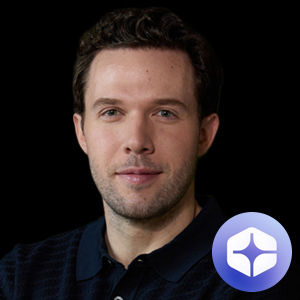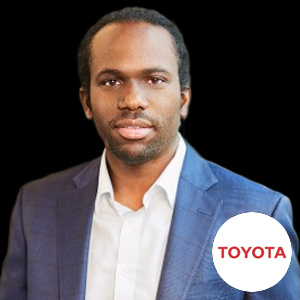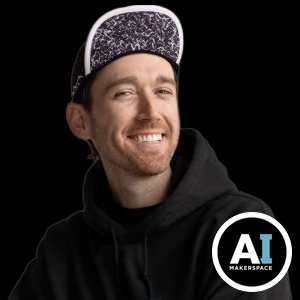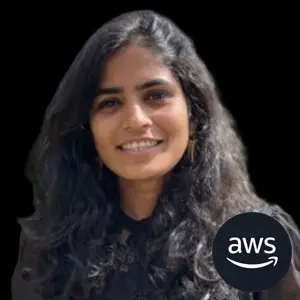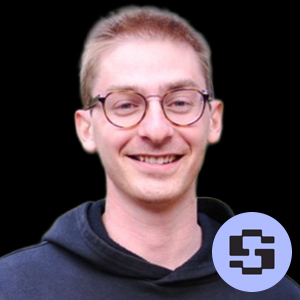All sessions and workshops curated by leading AI/ML practitioners
Agents in Production

Paco Nathan
Principal DevRel Engineer, Senzing
Doxing Dark Money: Entity Resolution to Empower Downstream Ai Applications in Anti-Fraud

Andrew Smith
Customer Engineer for Startups, Google Cloud
Building an Agent in 30 minutes with ADK and MCP

Pablo Salvador Lopez
Principal AI Application Development Architect – AI Solution Engineering Global Black Belt Team, Microsoft
From Static IVRs to Agentic Voice AI: Building Real-Time Intelligent Conversations

Hannes Hapke
Principal Machine Learning Engineer, Digits
The Hard Truth About AI Agents: Lessons Learned from Running Agents in Production

Linus Lee
EIR & Advisor, AI, Thrive Capital
Agents as Ordinary Software: Principled Engineering for Scale

Tony Kipkemboi
Head of Developer Relations, CrewAI
Building Conversational AI Agents with Thread-Level Eval Metrics

Claire Longo
Lead AI Researcher, Comet
Building Conversational AI Agents with Thread-Level Eval Metrics

Vaibhav Gupta
CEO, Boundary
Context Engineering: Practical Techniques for Improving Agent Quality Today

Akshay Mittal
Staff Software Engineer, PayPal
Agent Name Service (ANS) in Action – A DNS-like Trust Layer for Secure, Scalable AI-Agent Deployments on Kubernetes

Irena Grabovitch-Zuyev
Staff Applied Scientist, PagerDuty
Testing AI Agents: A Practical Framework for Reliability and Performance

Himani Rallapalli
Senior Applied Scientist, Microsoft
Judging the Agents: Building Reliable LLM Evaluators with Scalable Metrics and Prompt Optimization

Kumaran Ponnambalam
Principal AI Engineer, Cisco
Agent Drift: Understanding and Managing AI Agent Performance Degradation in Production
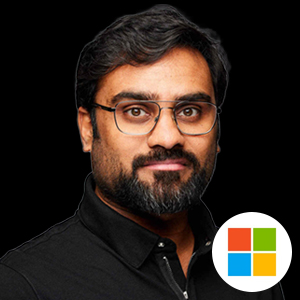
Sandeep Gadey
Principal Cloud & AI Architect, Microsoft
Get Started with AI agents Using Azure AI Foundry

Shub Argha
Founding Solutions Engineer, Arcade.dev
Untangling the Web: Navigating the Complex Landscape of Open Source AI Networking Protocols

Pratik Verma
Founder & CEO, Okahu AI
Build Reliable AI Apps with Observability, Validations and Evaluations

Niels Bantilan
Chief ML Engineer, Union.ai
A Practical Field Guide to Optimizing the Cost, Speed, and Accuracy of LLMs for Domain-Specific Agents
AI Agents for Developer Productivity

Calvin Smith
Senior Researcher Agent R&D, OpenHands
Code-Guided Agents for Legacy System Modernization

Chris "The Wiz" Alexiuk
Co-Founder & CTO, AI Makerspace
Vibe-Coding Your First LLM End-to-End Application

Kishan Rao
Engineering Manager, Delivery and Automation Platform, Okta
Your Infrastructure Just Got Smarter: AI Agents in the DevOps Loop
AI Agents for Model Validation and Deployments

Eric Reese
Senior Manager, Site Reliability Engineering, BestBuy
Don't Page the Planet: Trust-Weighted Ops Decisions
Augmenting Workforces with Agents

Vaibhav Page
Principal Engineer, Blackrock
Context is King: Scaling Beyond Prompt Engineering at BlackRock

Infant Vasanth
Senior Director of Engineering, Blackrock
Context is King: Scaling Beyond Prompt Engineering at BlackRock

Kshetrajna Raghavan
Principal Machine Learning Engineer, Shopify
Where Experts Can't Scale: Orchestrating AI Agents to Structure the World's Product Knowledge

Ricardo Tejedor Sanz
Senior Taxonomist, Shopify
Where Experts Can't Scale: Orchestrating AI Agents to Structure the World's Product Knowledge

Federico Bianchi
Senior ML Scientist, TogetherAI
From Zero to One: Building AI Agents From The Ground Up

Freddy Boulton
Open Source Software Engineer, Hugging Face
Gradio: The Web Framework for Humans and Machines

Madhu Ramanathan
Senior Engineering Leader,Trust and Safety, Meta
The Efficiency Equation: Leveraging AI Agents to Augment Human Labelers in Building Trust and Safety Systems at Scale
Data Engineering in an LLM era

Juan Sequeda
Principal Researcher, data.world from ServiceNow
The Missing Layer: Why Semantics and Knowledge Graphs Are Essential for AI-Ready Data Systems

Bhavana Sajja
Senior Machine Learning Engineer, Expedia Inc
Fake Data, Real Power: Crafting Synthetic Transactions for Bulletproof AI

Alessandro Pireno
Founder, Stealth Company
I Tried Everything: A Pragmatist's Guide to Building Knowledge Graphs from Unstructured Data
Governance, Auditability & Model Risk Management

Lanre Ogunkunle
Senior AI Engineer, PLEYVERSE AI
MCML: A Universal Schema for AI Traceability and Lifecycle Governance

Alex Olaniyan
Project Manager, PLEYVERSE AI
MCML: A Universal Schema for AI Traceability and Lifecycle Governance
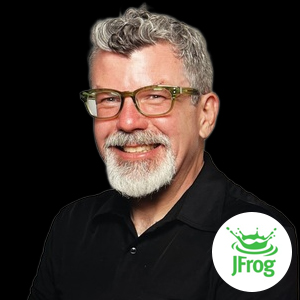
Bill Manning
Senior Solution Architet, Jfrog, Inc.
Mind Your Models: Governance and Discovery in the Age of AI Sprawl
LLMs on Kubernetes

Aleksandr Shirokov
Team Lead MLOps Engineer, Wildberries
LLM Inference: A Comparative Guide to Modern Open-Source Runtimes
ML Collaboration in Large Organizations

Eric Riddoch
Director of ML Platform, Pattern AI
Insights and Epic Fails from 5 Years of Building ML Platforms
ML Lifecycle Security

Sanket Badhe
Senior Machine Learning Engineer, TikTok
Adversarial Threats Across the ML Lifecycle: A Red Team Perspective
ML Training Lifecycle

Zachary Carrico
Senior Machine Learning Engineer, Apella
A Practical Guide to Fine-Tuning and Deploying Vision Models

Donny Greenberg
Co-Founder / CEO, Runhouse
Why is ML on Kubernetes Hard? Defining How ML and Software Diverge

Paul Yang
Member of Technical Staff, Runhouse
Why is ML on Kubernetes Hard? Defining How ML and Software Diverge

Micaela Kaplan
ML Evangelist, HumanSignal
From Benchmarks to Reality: Embedding HITL in Your MLOps Stack

Claudia Penaloza
Data Scientist, Continental Tires
Multilingual ML in Action: Building & Deploying Continental RnD’s First Predictive ML Model
MLOps for Smaller Teams

Kamal Singh Bisht
Principal Application Engineer, Discover Financial Services
Autonomous MLOps Pipelines: Architecting Self-Healing, Drift-Resistant Models at Scale
Multimodal Systems in Production

Denise Kutnick
Co-Founder & CEO, Variata
Opening Pandora’s Box: Building Effective Multimodal Feedback Loops

Dmitry Petrov
Co-Founder & CEO, DataChain
Query Inside the File: AI Engineering for Audio, Video, and Sensor Data
Scoping and Delivering Complex AI Projects

David Baum
UX Researcher & Design Strategist, Amazon
Humans in the Loop: Designing Trustworthy AI Through Embedded Research

Kelvin Ma
Staff Software Engineer, Google Photos
Productizing Generative AI at Google Scale: Lessons on Scoping and Delivering Ai Powered Editors
Lightning Talks

Mariam Jabara
Senior Field Engineer, Arcee AI
SLMs + Fine-Tuning: Building the Infrastructure for Multi-Agent Systems
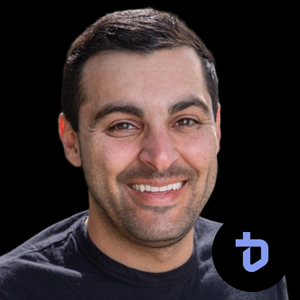
Yoni Michael
Co-Founder, typedef
DataFrames for the LLM Era: Turning Inference into a First-Class Transform with Fenic

Noah Nefsky
Forward Deployed Engineer, Tavily
The Missing Piece: How Web Search Supercharges AI Agents

Devdas Gupta
Senior Manager Software Development and Engineering Lead, Charles Schwab
AI-Powered Development Productivity in Finance

Himanshu Joshi
CAIO, COHUMAIN Labs
The Iteration Trap: Why Gen AI Code Refinements Could Be Silently Undermining Your Security?

Dippu Kumar Singh
Leader For Emerging Data & Analytics, Fujitsu North America Inc.
Explainable AI at Fujitsu North America Inc.

Naveen Reddy Kasturi
Staff Machine Learning Engineer, Realtor.com
Agent-Powered Code Migration at Realtor.com

Nitin Kumar
Director Data Science, Marriott International
A Modular Framework for Building Agentic Workforces at Marriot International

Ravi Shankar
Manager, Data Science, Dick's Sporting Goods
Streamlining ML collaboration at Dick's Sporting Goods

Prasanth Nandanuru
Managing Director, Wells Fargo
ROI of Gen AI Frontier Models vs Traditional Models in Finance Industry

Balaji Varadarajan
Lead AI Engineer - Digital Personalization, Target Enterprise
Building Sustainable GenAI Systems at Target
Speakers Corner

Alexej Penner
Founding Engineer, ZenML
The Real Problem building Agentic applications (And How MLOps Solves It)
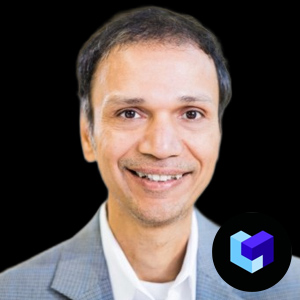
Raghu Chandra
Strategic Advisor, TrueFoundry
Unified Control Plane for Enterprise GenAI: Powered by Agentic Deployment Platform with Central AI Gateway & MCP Integration
The Next Wave of AI

Robert Shelton
Applied AI Engineer, Redis
Memory and Memory Accessories: Building an Agent from Scratch

Vishakha Gupta-Cledat
Co-Founder / CEO, ApertureData
What Does A Foundational Data Layer For The AI Era Look Like?

Nancy Burditt
Customer Engagement Manager, Atlas Cloud
Context Under Pressure: Engineering Agents at Scale

Aish Agarwal
CEO, Connecty AI
Live Demo - World's First Data Agentic AI With Business Logic Intelligence
more coming soon
Agenda
This agenda is still subject to changes.
Join free virtual sessions October 6–7, then meet us in Austin for in-person case studies, workshops, and expo October 8–9
